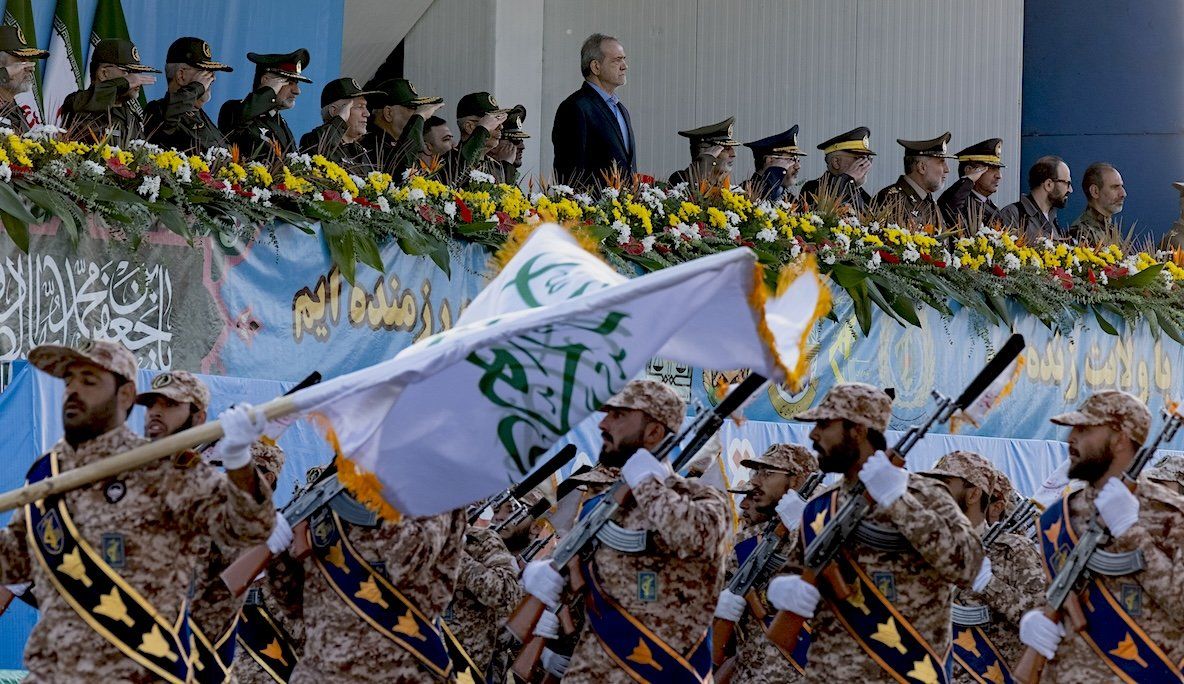Hard Numbers: Iran’s elite fighters go off the grid, Cognac takes on China, Egyptian weapons flood Somalia, Argentines empty their mattresses, “Noise shouter” wins Kiwi election
Iranian President Masoud Pezeshkian stands at attention while armed military personnel from the Islamic Revolutionary Guard Corps parade during a military parade commemorating the anniversary of the Iran-Iraq War in Tehran, on Sept. 21, 2024.
800: Some 800 protesters, many on tractors, hit the streets in the southwestern French town of Cognac this week, in a “spirited” display of anger at the possibility of Chinese tariffs on European brandy. Losing the huge Chinese market could cripple the struggling Cognac industry. Beijing and Brussels are locked in a series of trade disputes over European food products and Chinese electric vehicles. The EU on Monday filed a World Trade Organization challenge against China’s recent investigation of European dairy goods.
2: A second Egyptian shipment of heavy weapons has arrived in Somalia, in a move that could stoke simmering tensions between both countries and neighboring Ethiopia. Egypt and Ethiopia are at odds over a major Ethiopian dam across a Nile tributary, while Somalia is angry at Ethiopia’s support for separatists in the region of Somaliland. Against that backdrop, Egypt and Somalia signed a security agreement earlier this year.
8 billion: Since Argentina’s radical libertarian President Javier Milei took office last December, chainsawing his way through government spending and imposing severe austerity measures, the country’s foreign currency deposits have surged by $8 billion. The data suggest growing confidence in his ability to stabilize an economy that has bounced from crisis to crisis for decades, though the upcoming expiry of an amnesty for hidden currency is also part of the story. See our exclusive interview with Milei here.
50,000: With more than 50,000 votes counted, the results are in: The hoiho, also known as the “yellow-eyed penguin,” has won New Zealand’s bird of the year election, seeing off a dark bird challenge from the karure – an all-black species of “goth” robin. The winner, whose name means “noise shouter” in the Maori language, is thought to be the world’s rarest penguin. It is also one of its most endangered, suffering a population decline of nearly 80% over the past 15 years.
